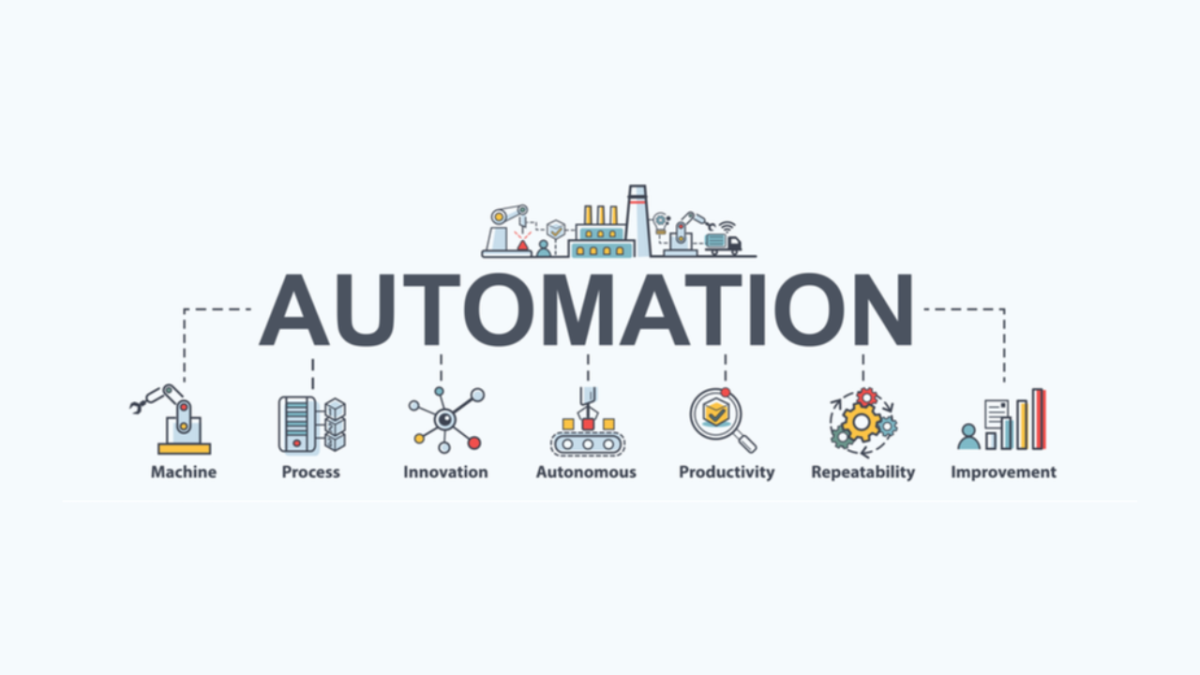Small businesses often face challenges when competing with large corporations that have more resources, larger budgets, and broader reach. However, automation is leveling the playing field, enabling small businesses to streamline operations, reduce costs, and deliver a superior customer experience. This article explores how automation can empower small businesses to compete effectively with industry giants while maximizing efficiency and growth potential.
1. Streamlining Operations
Automation eliminates manual processes, helping small businesses improve efficiency and save time. Tasks that previously required hours of effort can now be completed in minutes, allowing business owners to focus on strategic growth.
Examples:
- Automating inventory management with tools like TradeGecko to track stock levels and reorder supplies.
- Streamlining workflows with project management tools like Monday.com or Trello.
- Automating appointment scheduling with software like Calendly.
Impact:
- Reduced operational errors.
- Faster task completion.
- Improved resource allocation.
2. Enhancing Customer Experience
Customer satisfaction is key to competing with big players. Automation allows small businesses to deliver personalized and efficient customer experiences, building loyalty and trust.
Examples:
- AI-powered chatbots like ChatGPT provide instant responses to customer inquiries.
- Automated email campaigns through platforms like Mailchimp keep customers informed and engaged.
- Loyalty programs that track and reward repeat purchases automatically.
Impact:
- Faster response times.
- Personalized customer interactions.
- Higher customer retention rates.
3. Optimizing Marketing Efforts
Small businesses often have limited marketing budgets, making it essential to maximize ROI. Automation tools simplify marketing campaigns, making them more targeted and cost-effective.
Examples:
- Automating social media posts and analytics with Hootsuite or Buffer.
- Using AI tools like Canva to quickly create professional-quality marketing materials.
- Running personalized ads with Google Ads’ automated bidding strategies.
Impact:
- Increased brand visibility.
- Better campaign performance insights.
- More efficient use of marketing budgets.
4. Reducing Costs
Automation helps small businesses reduce costs by minimizing the need for extensive labor and manual processes. This enables small companies to operate efficiently with leaner teams.
Examples:
- Automated payroll systems like Gusto handle employee salaries and benefits seamlessly.
- Accounting tools like QuickBooks automate invoicing and expense tracking.
- Self-checkout kiosks or online payment systems reduce staffing needs in retail.
Impact:
- Lower overhead costs.
- Increased profitability.
- More resources available for growth.
5. Improving Scalability
As small businesses grow, managing increasing workloads becomes a challenge. Automation ensures scalability without the need for significant additional resources.
Examples:
- Automated customer relationship management (CRM) platforms like HubSpot or Salesforce scale with business needs.
- E-commerce automation tools streamline order processing, shipping, and returns.
- Cloud-based software solutions handle higher traffic and demand without downtime.
Impact:
- Seamless handling of increased demand.
- Consistent service quality during growth phases.
- Ability to expand into new markets without major restructuring.
6. Gaining Insights with Data Analytics
Data-driven decision-making is a critical advantage for competing with larger players. Automation tools help small businesses collect, analyze, and act on valuable data insights.
Examples:
- Google Analytics automates website traffic monitoring and reporting.
- AI-driven tools like Tableau provide actionable insights from complex datasets.
- Social media platforms like Instagram and Facebook offer automated performance analytics.
Impact:
- Better understanding of customer behavior.
- Smarter decision-making for marketing and operations.
- Identifying growth opportunities and trends.
7. Offering Competitive Pricing
By reducing costs and improving efficiency, automation allows small businesses to offer competitive pricing while maintaining profitability. This is particularly important when competing with big players who benefit from economies of scale.
Examples:
- Automated inventory management reduces wastage, lowering costs.
- Chatbots reduce the need for a large customer service team, saving expenses.
- Automation in manufacturing helps lower production costs.
Impact:
- Increased price competitiveness.
- Better profit margins.
- Improved market positioning.
Conclusion
Automation is a powerful tool for small businesses looking to level the playing field with big players. By streamlining operations, enhancing customer experience, and optimizing costs, automation enables small businesses to operate smarter and compete more effectively.
The key to success lies in identifying the areas where automation can deliver the most value and investing in tools that align with business goals. With the right automation strategy, small businesses can thrive in an increasingly competitive landscape.
